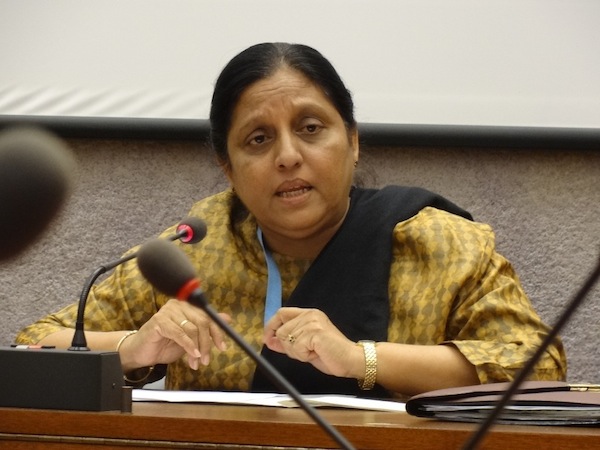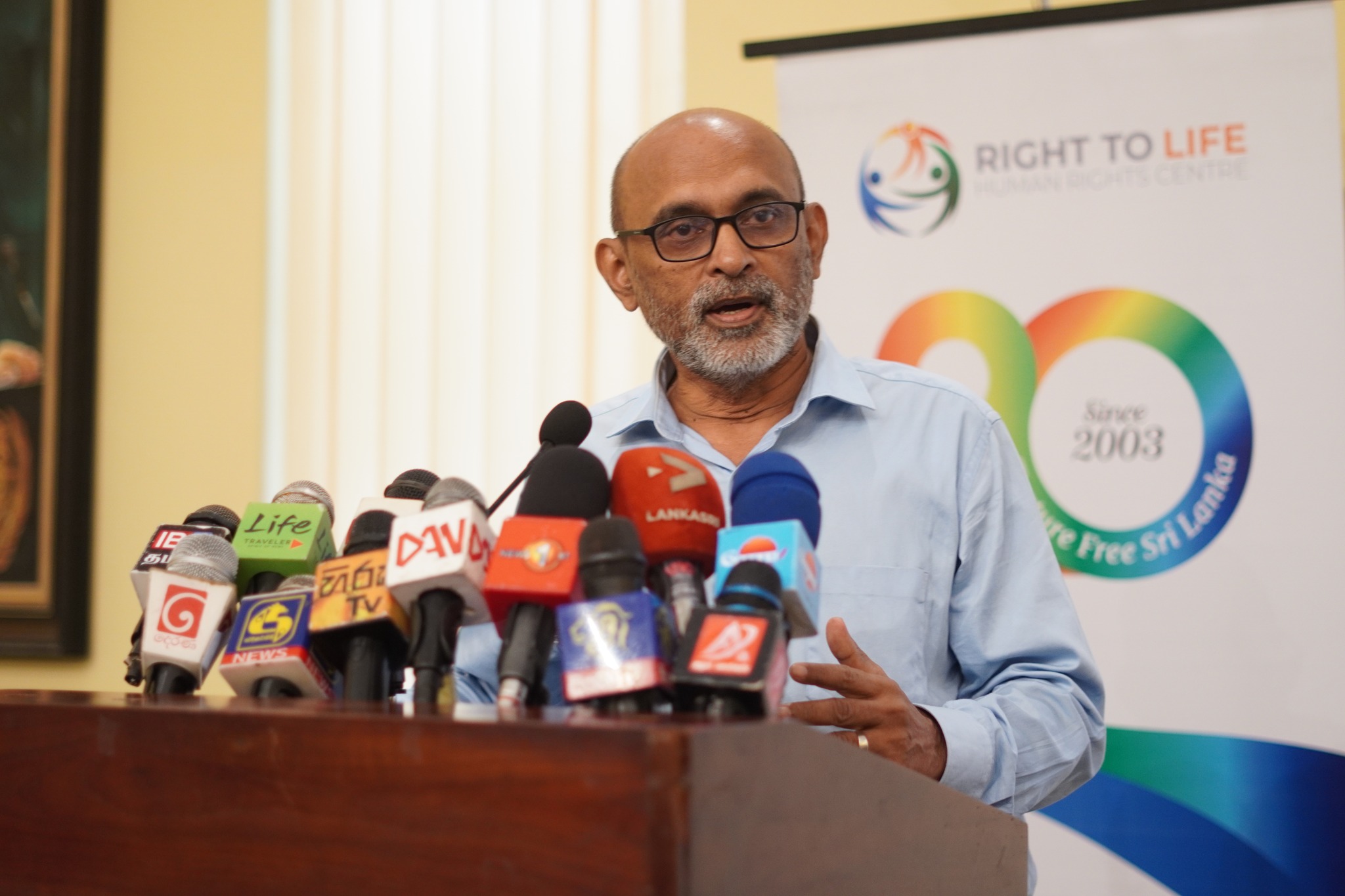On August 30, the world marks the International Day of the Disappeared, a sombre occasion that highlights the plight of individuals who have vanished without a trace and the families left behind in anguish. In Sri Lanka, a country burdened with one of the highest rates of enforced disappearances globally, this day carries profound significance. Mr. Brito Fernando, Chairman of the Families of the Disappeared, offers critical insights into the issue’s history, the legal landscape, ongoing challenges, and possible solutions.
The Global and Local Context of Disappearances
“Enforced disappearances have been used as a political weapon in many countries to silence dissent,” Fernando explains. From Asia to Latin America, governments have resorted to making individuals vanish to instil fear and suppress uprisings. Sri Lanka’s experience is no different.
Fernando identifies three distinct periods in the country’s history where disappearances surged—the 1971 insurrection, the 1988-89 southern insurgency, and the civil war from 1983 to 2009. During the 1988-89 uprising alone, he notes that “about 60,000 people were disappeared, though the a commission in 1994 officially recorded 27,526 cases.”
The numbers from the civil war are even more alarming. Fernando cites a striking statistic: the Mannar Bishop’s observation of a discrepancy of 147,660 individuals between those entering and exiting war zones. Official records place Sri Lanka second globally for reported disappearances, with Fernando estimating the real figures to be between 100,000 and 150,000.
The Role of State and Rebel Actors
Disappearances in Sri Lanka, Fernando points out, have not been limited to state actors. While successive governments have been accused of enforced disappearances, especially during the 1988-89 uprising and the civil war, the LTTE also faced allegations. “Disappearances became a tool of political suppression,” Fernando says, noting that this practice often operated outside judicial scrutiny.
Legal Responses and Their Limitations
In 2018, Sri Lanka introduced a law declaring enforced disappearances a criminal offense, punishable by up to 20 years in prison (The International Convention for the Protection of All Persons from Enforced Disappearance Act, No. 5 of 2018). It also mandated compensation for victims’ families. While this was a milestone, Fernando stresses its critical flaw: the law does not apply retroactively. “Because of this, crimes committed during the 1988-89 period or the war cannot be addressed under this law,” he says.
Another mechanism, the Habeas Corpus petition, allows families to demand the production of disappeared individuals in court. However, Fernando notes that this process often falls short of delivering justice. “Habeas Corpus cases only demand that the court locate the individual. They do not result in criminal punishment for perpetrators,” he explains.
Accountability Efforts: Progress and Shortfalls
The establishment of the Office on Missing Persons (OMP) in 2017 raised hopes among families. Yet, Fernando highlights its shortcomings. Despite receiving 14,000 complaints, including 4,000 involving military personnel, the OMP has yet to deliver substantive results. “Not a single case has been thoroughly investigated to uncover what really happened,” Fernando states.
He attributes this failure to a lack of political will. “Sri Lanka has the necessary legal framework and institutions, but the political leadership lacks the commitment to address the problem,” he asserts.
The Issue of Compensation
The question of reparations for the families of the disappeared has been a contentious one. Fernando criticizes the inconsistency in compensation practices. He recalls several examples of unequal treatment: a politician killed during the 2022 protests received Rs. 10 million in compensation, while families of ordinary citizens were given far less.
“Compensation alone cannot heal the wounds,” Fernando says. However, he emphasizes that when provided, it must reflect the gravity of the loss. Current compensation processes, he adds, are riddled with inefficiencies and fail to address the emotional and financial burdens borne by families.
The Role of International Oversight
International scrutiny has kept the spotlight on Sri Lanka’s human rights issues, particularly enforced disappearances. Fernando notes that UNHRC Resolution 30/1 in 2015 called for truth-seeking and accountability mechanisms. However, he observes that subsequent governments have shown little interest in following through.
“Without international pressure, Sri Lanka’s leadership would not even pretend to act,” Fernando asserts. He views continued international engagement as vital, though he acknowledges the challenges of achieving consensus for interventions such as international investigations.
A Path Forward: Truth, Justice, and Reconciliation
Fernando emphasizes that resolving the issue requires uncovering the truth, ensuring justice, and compensating families fairly. “We need to expose the truth, deliver justice, and provide reparations—not just as a gesture but as a genuine attempt to address the suffering,” he says.
For Fernando, truth-seeking is paramount. He highlights the trust deficit faced by the OMP, particularly among families in the North and East. “Parents in the North reject the OMP because they have no confidence it will provide real answers,” Fernando explains. He calls for transparency and impartiality to rebuild trust in the institution.
The Broader Impact of Inaction
Fernando warns of the long-term consequences of failing to address disappearances. “Every 20 to 30 years, Sri Lanka has faced uprisings, often suppressed through disappearances and killings. Without justice, such cycles are likely to repeat,” he cautions.
The Role of the State and Military
Addressing disappearances is also critical for the military’s integrity, Fernando argues. Many military personnel he has spoken to express frustration at being held collectively accountable for the actions of a few. “They ask, ‘Why should the entire institution be blamed for politically motivated disappearances?’” he shares.
He references the case filed in 2019 involving the disappearance of 20 individuals under naval custody as an example of delayed justice. “Four years have passed, and not a single hearing has been held in this case,” Fernando laments.
Marking August 30: A Call for Justice
On August 30, Fernando and the Families of the Disappeared visited embassies, submitting petitions urging the international community to hold Sri Lanka accountable. “We will ask them to keep Sri Lanka on the agenda in Geneva until justice is achieved,” he says.
Conclusion
Fernando’s reflections highlight the complexities surrounding enforced disappearances in Sri Lanka. While legal and institutional frameworks exist, the lack of political will continues to obstruct justice. As families of the disappeared demand answers, Fernando’s message is clear: “Without truth and accountability, the wounds of the past will remain open, and history may well repeat itself.”
Based on a media interview conducted with Ajith Perakum Jayasinghe.


